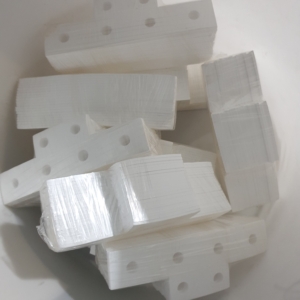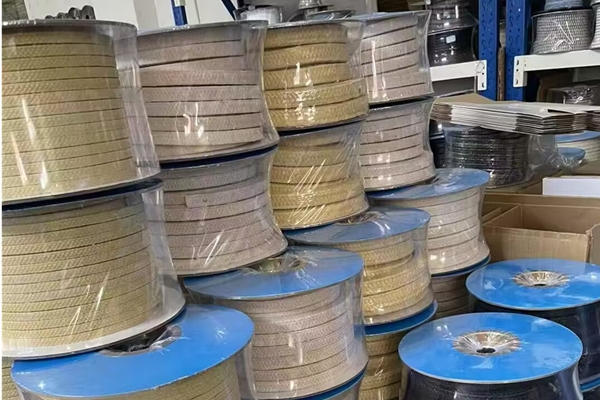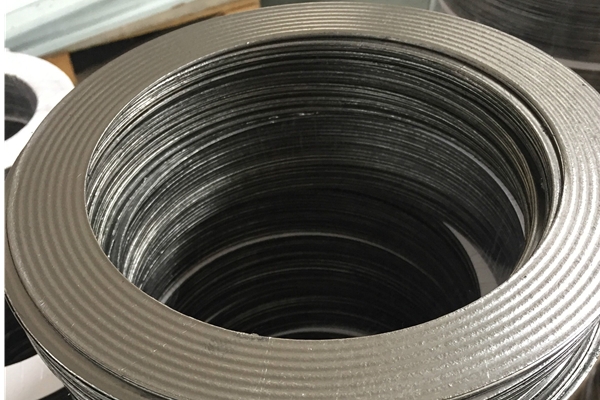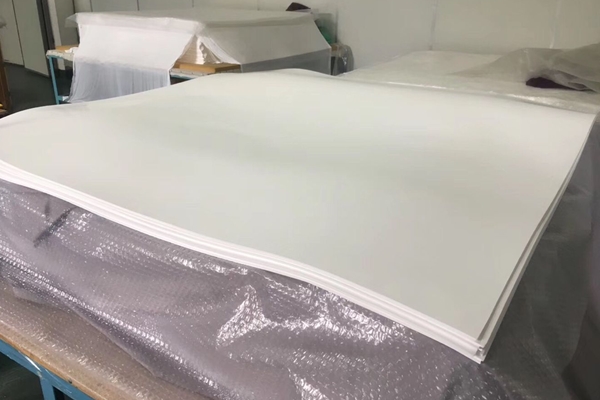With the development of modern industries, especially the petroleum, chemical, nuclear, and power generation industries, pressure vessels are developing towards high-temperature, high-pressure, and high-vacuum conditions, which pose new requirements for gasket sealing. Various new materials and structures are constantly emerging, including the subject of our discussion today – ePTFE gaskets (or expanded polytetrafluoroethylene gaskets). Do you know what ePTFE gaskets are, what their performance characteristics are, and where they can be applied?
The so-called “ePTFE gaskets,” or expanded polytetrafluoroethylene gaskets, are cut or stamped from 100% PTFE expanded into a tough, porous material.
The characteristics of ePTFE gaskets are as follows:
- Easy to cut: ePTFE gaskets can be cut into any shape by mechanical stamping or manual cutting, which makes installation and use more convenient and easier.
- Conformability: ePTFE gaskets have unique conformability, so they can produce good sealing effects on rough or damaged flange surfaces without increasing much pressure during installation and use.
- Chemical resistance: ePTFE gaskets have strong chemical resistance and do not react with any chemicals except for a few rare chemicals such as molten alkali metals, free fluorine, and trivalent nuclei. Therefore, ePTFE gaskets can be used in all sealing applications within the allowable temperature range (up to 315℃), which greatly reduces the variety and quantity of sealing parts.
- Creep resistance: The unique high-density fiber structure of ePTFE material gives it strong creep resistance, and its mechanical properties are very stable as it does not contain any adhesives or additives.
Applications of expanded PTFE gaskets:
1, expanded PTFE gaskets can be used for pressure sealing of interfaces with different hardness, such as (1) rigid metal interfaces (generally 3mm); (2) fiberglass interfaces (generally 3mm); (3) plastic liner interfaces (used below or equal to DN300); (4) enamel, steel-lined glass interfaces.
2, Due to the excellent leakage resistance of Expanded PTFE gaskets, with a gas leakage rate of less than 1×10-4, they can also be used for sealing corrosive gases such as chlorine gas and vinyl chloride gas, helping many large-scale caustic soda and chloralkali plants solve the problem of gas leakage.
Applicable Industry: Chemical industry, petrochemical industry, oil refining, chloralkali industry, acid production, phosphate fertilizer industry, pharmaceutical industry, pesticide industry, chemical fiber industry, dyeing, and finishing industry, coking industry, gas industry, organic synthesis industry, non-ferrous metallurgy, steel industry, atomic energy industry, and high-purity product production (such as ion membrane electrolysis). It is also suitable for highly demanding fluid sealing conditions, including strong acid, strong alkali, gas, solvent, hydrocarbon, water, chlorine, aluminum fluoride, hydrogen peroxide, etc. It performs well in industries such as petroleum and chemical, caustic soda, chlor-alkali, and shipbuilding.





